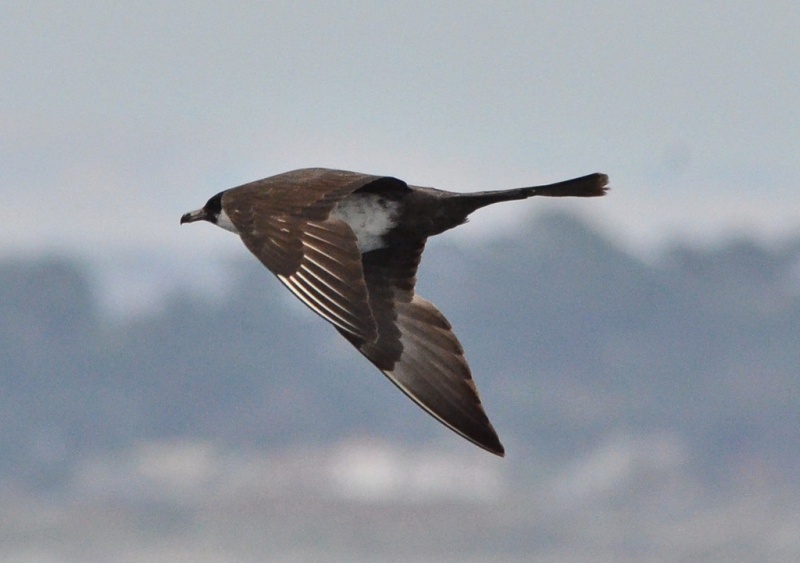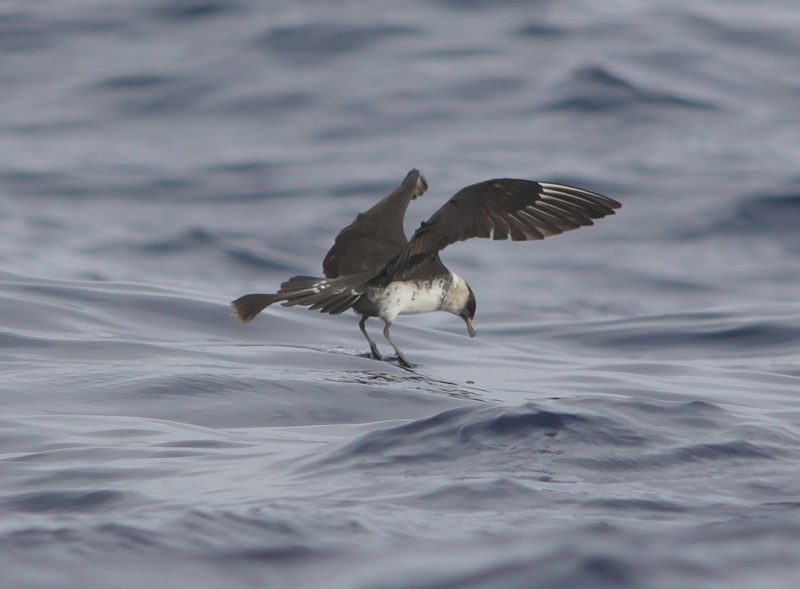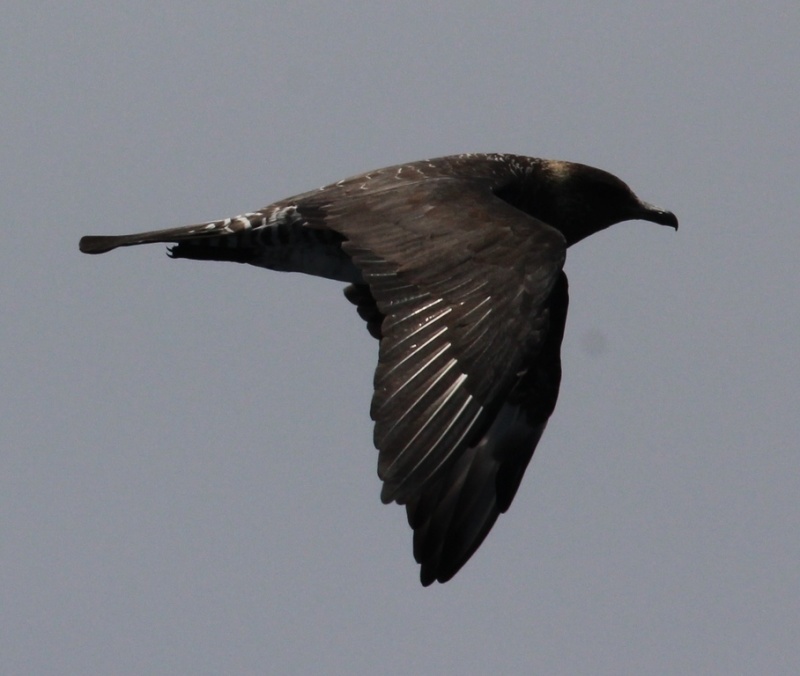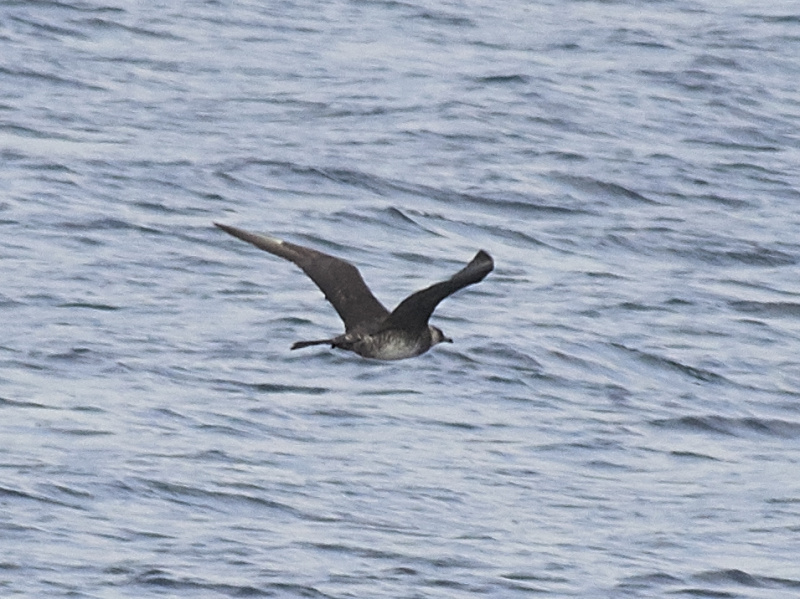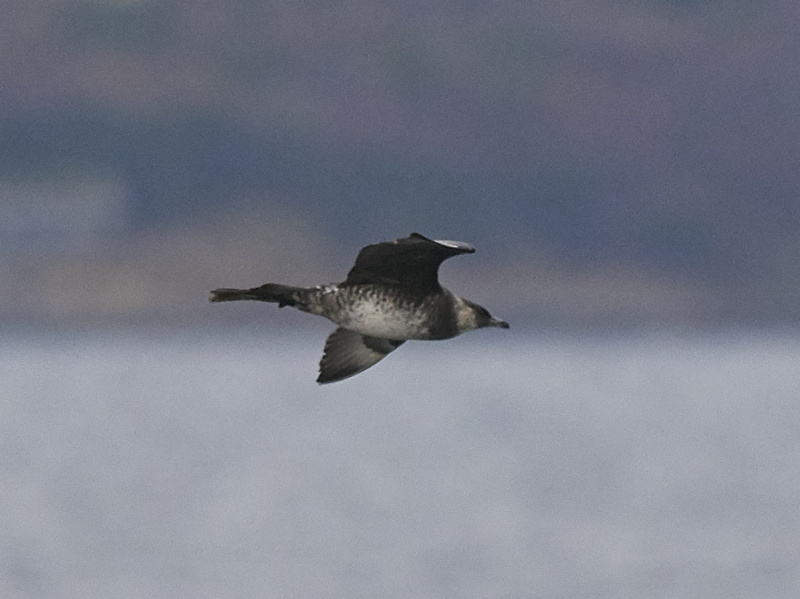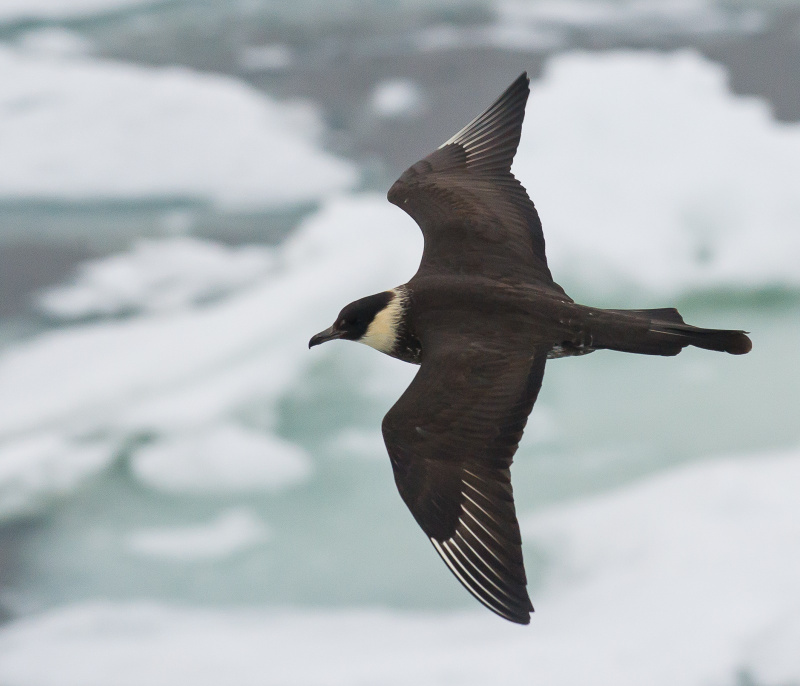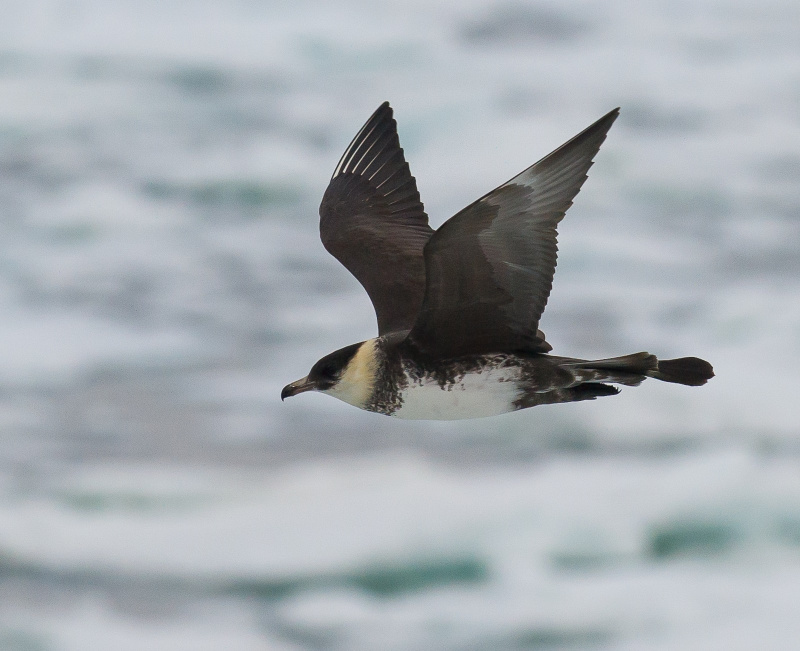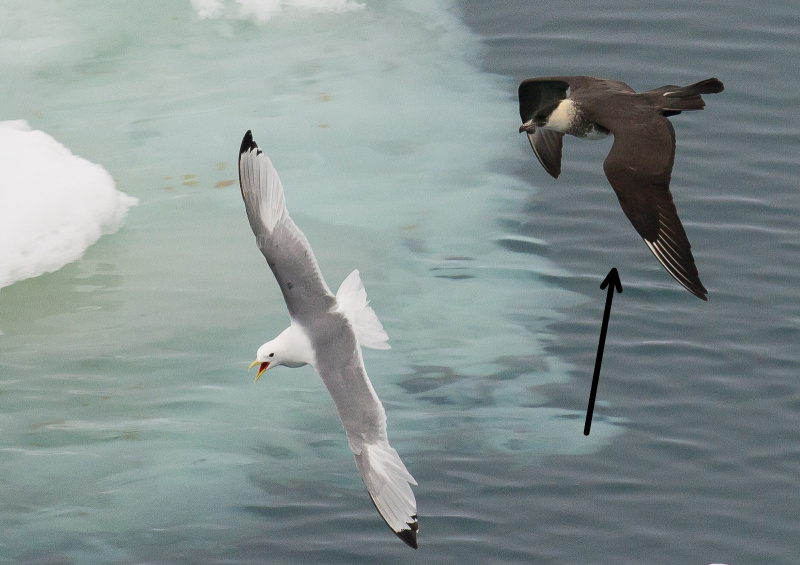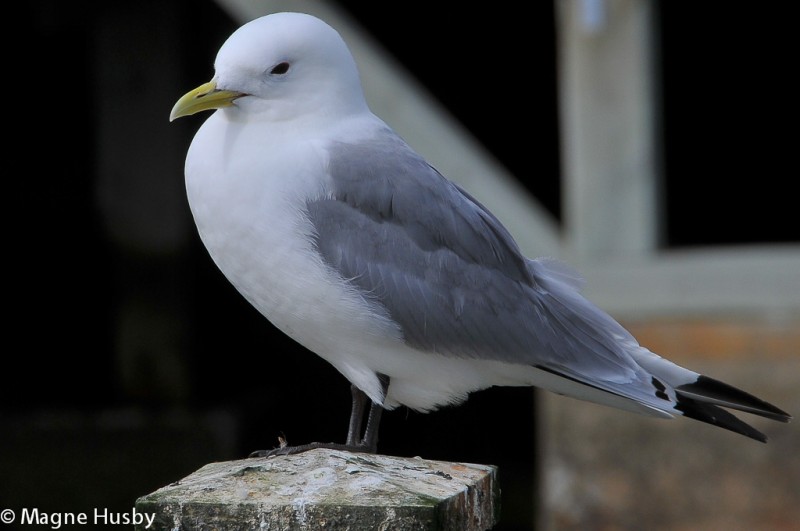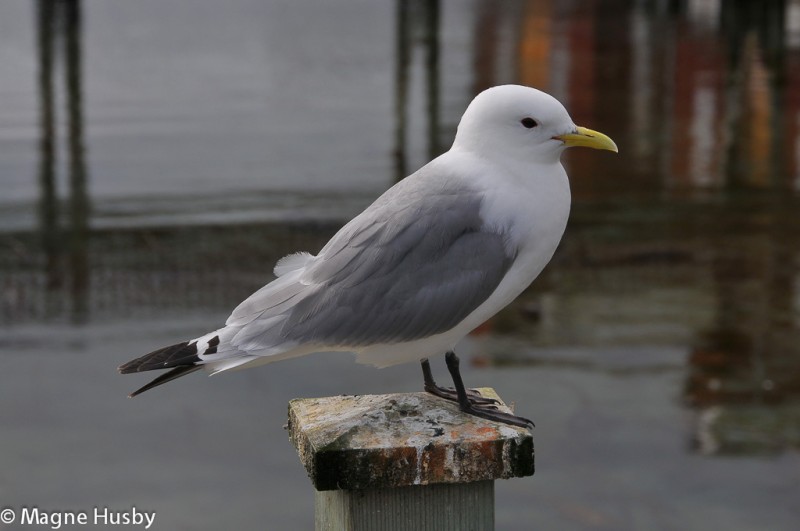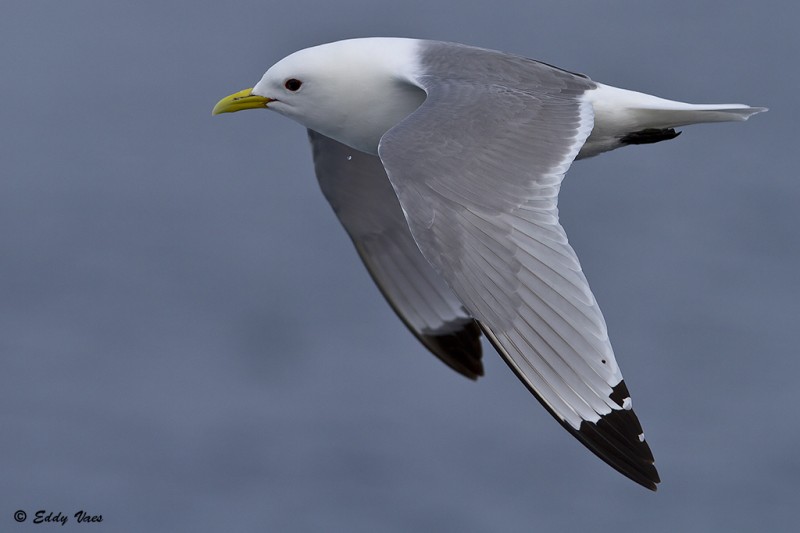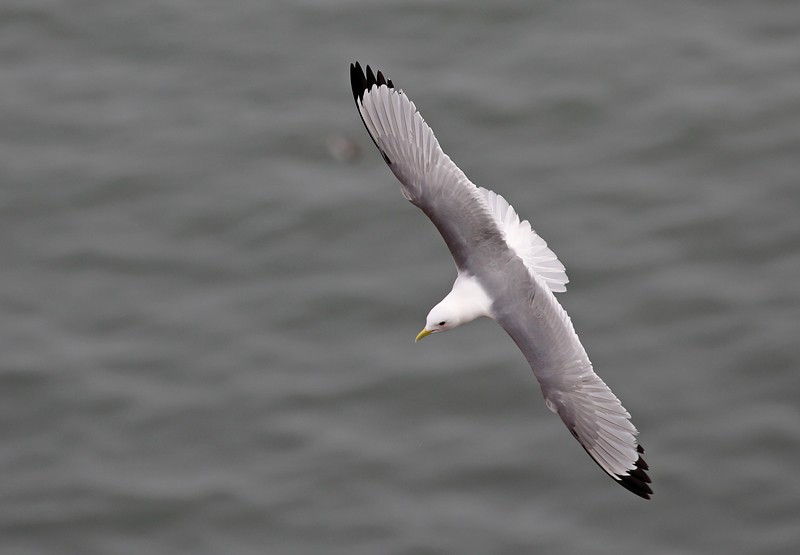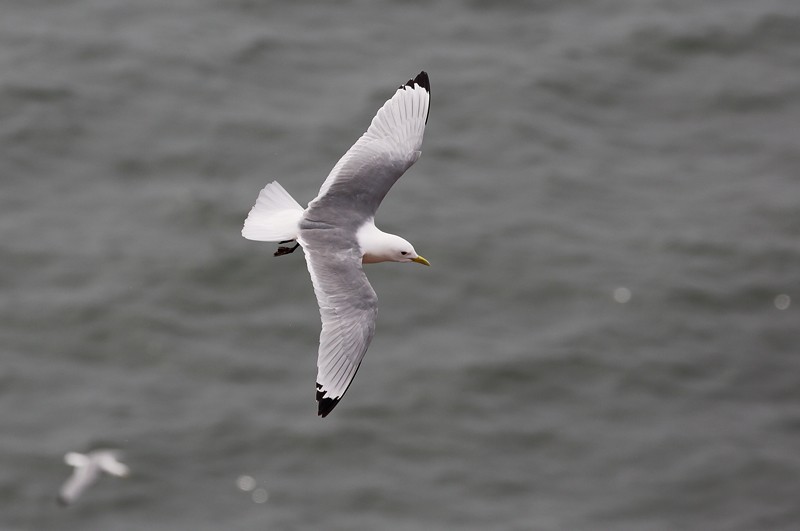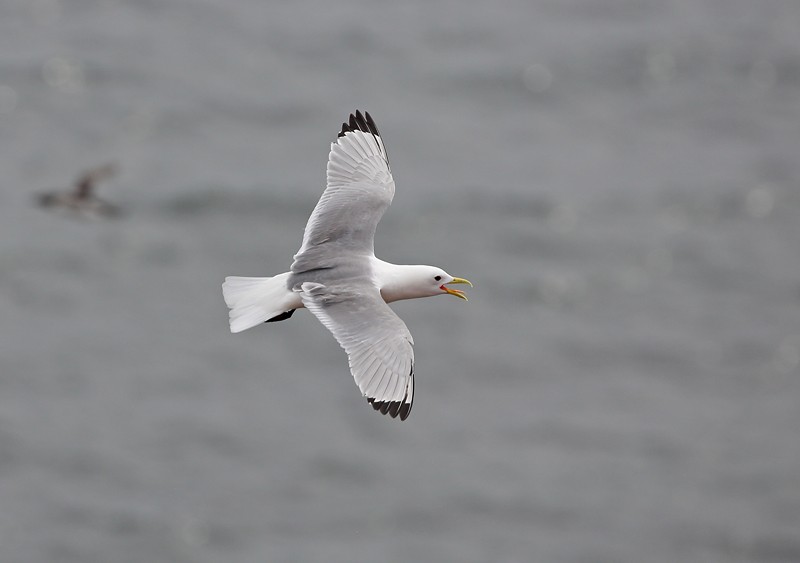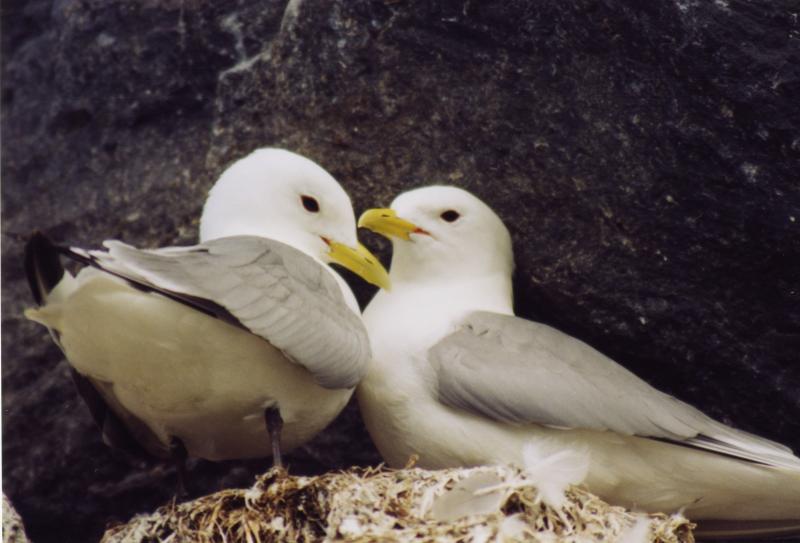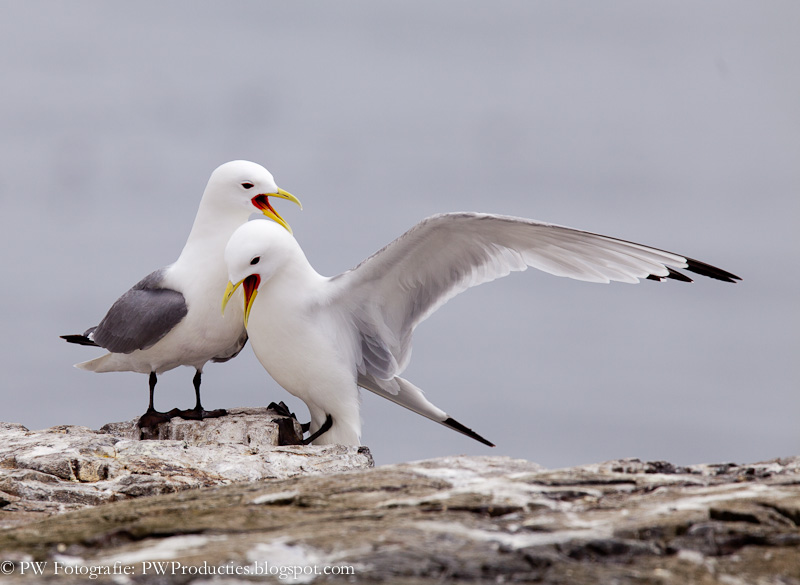Pomarine Jaeger (Stercorarius pomarinus)
Kittiwake (Rissa tridactyla)
Pale and dark morphs. Often difficult to distinguish from Arctic Skua. Adults with broad, spoon-shaped streamers. These are moulted twice a year, so adults lacking these are not uncommon. The dark cap reaches around the bill base and down to the chin. Breast band in pale morph is generally broader and more pronounced than in Arctic Skua, but in some males it is lacking altogether. Leaves an overall more robust and powerful impression than Arctic. Wings are broader than the distance from trailing wing-edge to tip of tail (streamers excluded), while the hand seems shorter. The light patches at the base of the primaries are more obvious, and many young birds shows a characteristic double patch, formed by additional white base of greater primary coverts (like Lesser Spotted Eagle). Rump and vent of juveniles usually boldly barred, in contrast to unbarred back and belly (visible even in dark morph). Streamers never pointed (in any plumage). Flight pattern straighter, and more determined than in Arctic Skua.
Sound:Short "kea" or "ke", and various mewing calls, usually deeper pitched than Arctic Skua. Also a characteristic, laughing and vibrating "kayayayayaya", heard mostly on breeding ground.
Alarm/flight call:
Distribution:
Wikipedia: map (se also Xeno-canto below)
Ecology:Birdlife ecology
Links:
Observation.org Latest observations
Image search Flickr NB! May give other species
CCCC-photo:loarie, Licence,Link.
CC-photo:jerryoldenettel, Licence,Link.
Sounds:CC. http://www.xeno-canto.org .Recorded by Andrew Spencer.
Small and agile gull with all black wing-tips, black legs (adults) and yellow bill. Area close to wing-tips much paler than rest of wings, and often visible at surprisingly long range (more so than the black tips). Adult winter with grey neck and black half-collar. Juveniles with black zig-zag pattern to wings, resembling pattern seen in Little Gull, Ross's Gull and Sabine's Gull. Differs from those in; no dark bar on secondaries, underparts of wing white, back grey, black on primaries reaches wing-tip. Flight action different from larger gulls; fast, stiff wing-beats and elegant maneuvering even in strong winds.
Sound:Highly vocal at breeding ground. A mewing "kitti-wake", with the pitch rising on the second drawn out syllable, and then falling. Generally silent elsewhere, except when squabbling over food.
Contact call:
Distribution:
Wikipedia: map (se also Xeno-canto below)
Ecology:Birdlife ecology
Links:
Observation.org Latest observations
Image search Flickr NB! May give other species
CCSounds:Recorded by Stein Ø. Nilsen,http://www.xeno-canto.org ,CC license

 English
English Albanian
Albanian
 Armenian
Armenian
 Bulgarian
Bulgarian
 Catalan
Catalan
 Croatian
Croatian
 Czech
Czech
 Danish
Danish
 Dutch
Dutch
 Finnish
Finnish
 French
French
 Georgian
Georgian
 German
German
 Greek
Greek
 Hungarian
Hungarian
 Italian
Italian
 Latvian
Latvian
 Lithuanian
Lithuanian
 Macedonian
Macedonian
 Norwegian
Norwegian
 Polish
Polish
 Portuguese
Portuguese
 Romanian
Romanian
 Russian
Russian
 Sami : Lule sami
Sami : Lule sami
 Sami : North sami
Sami : North sami
 Sami : South sami
Sami : South sami
 Scientific names
Scientific names
 Serbian
Serbian
 Spanish
Spanish
 Swedish
Swedish
 Ukrainian
Ukrainian

